AUGUSTA — In a historic and often testy first meeting, the Maine Senate’s Conduct and Ethics Committee cleared Sen. Ron Collins, R-Wells, of unethical behavior following a complaint by a fellow lawmaker that he had defrauded taxpayers by “double dipping” on his state expense reports.
The five-member panel voted 4-1 that Collins did not behave in an unethical fashion when he prepaid for lodging at the Senator Inn in Augusta with leftover funds from his privately financed campaign committee in 2014 and then later requested and accepted a state per diem allowance for housing for the same expense in 2015.
The committee also voted 4-1 to make a recommendation to the next Legislature that it review the expense reimbursement and per diem system used by lawmakers to improve transparency and increase oversight of the taxpayer-funded expenditures.
The committee, which was meeting for the first time since it was created in 1989, also tabled action on an ethics complaint against Assistant Senate Majority Leader Andre Cushing, R-Newport. The panel noted that the Maine Ethics Commission voted Wednesday to investigate a separate complaint against Cushing that involves much of the same information.
The ethics commission has jurisdiction over Maine’s campaign finance law, and is investigating whether Cushing accurately reported the transfer of funds among a political action committee he maintains and other personal and business accounts.
The Senate committee met for about four hours Thursday, recessing several times as the panel first grappled with the allegations against Collins and Cushing by Democratic Sens. John Patrick of Rumford and Minority Leader Justin Alfond of Portland.
Collins and Cushing both asked Senate President Michael Thibodeau, R-Winterport, to call the ethics panel together after the two Democrats held a news conference Monday to suggest the Republican senators had “defrauded taxpayers.”
“I was very troubled when I first heard about this on Monday,” said Collins, who is running against Democrat Jonathan Kilbourn for re-election to the York County Senate District 34 seat. “I’ve striven for the 14 years that I’ve been a legislator up here in Augusta to always do the best job I possibly could with integrity and honesty – to be honest, straightforward and always transparent with anything I always do.”
Leading Republicans said the Democrats’ desire to regain a Senate majority in November had prompted the complaints. Republicans currently hold 20 of the 35 Senate seats.
Thibodeau called Thursday’s proceedings an “all-time low point for politics in Maine.”
“This is a huge relief, to say the least,” Collins said following the vote. “I knew all along that I had done nothing wrong, but to have my integrity called into question by my Democrat colleagues was extremely troubling and hurtful. At the same time, it was obvious that it was a desperate, last-minute political stunt.
“I understand that the Democrats are dissatisfied with being in the minority, but to engage in this type of mud-slinging is beneath this institution and those elected to serve the people of Maine.”
But Alfond said the complaints were about upholding the “public’s trust” in the Legislature. Alfond told the committee that Collins was “asking the Maine taxpayer to repay something he never personally paid for.”
“For me, the way my common sense works is you use that receipt once and you ask someone to pay you once,” Alfond said. “What Sen. Collins apparently has done is he’s used that receipt twice because he has prepaid the $2,400 using some funds and then he has asked the taxpayers to pay those funds all over again.”
The argument fell flat with Sen. Roger Katz, R-Augusta, who was appointed to serve on the committee in place of Collins just days ago. Katz, an attorney, said he was troubled that Patrick had charged Collins with fraud when there was little evidence of that.
“I interpret that word to mean violation of the law,” Katz said and he pointed to three laws that govern the reimbursements and per diem allowances lawmakers are paid for their expenses. He challenged Alfond to state specifically which law Collins had broken. Alfond said the committee’s primary role was to determine if Collins acted ethically. “We weren’t brought together in a court, we were brought together around conduct and ethics,” Alfond said.
But Katz rejected that, saying, “You have brought this into the court of public opinion, Sen. Alfond, and the word fraud has been used, which has a very clear meaning.”
Sen. Anne Haskell, D-Portland, was the lone dissenting vote in the case against Collins. She argued that he breached the public trust by using $2,400 of campaign funds and receiving taxpayer dollars to cover the very same expense.
“I recognize and respect the will of the committee, to me, the ethical case against Sen. Collins was straightforward,” Haskell said. “His campaign donors paid his hotel bill, and then he asked taxpayers to cut him a check for the very same bill. When that check came, we know it didn’t go to the Senator Inn. It went to his pocket. And that’s wrong.”
Katz said under the law Collins had legally used his campaign funds to pay for some of his legislative expenses and that his request for a per diem allowance for lodging was not a reimbursement for actual lodging expenses, but an entitlement all lawmakers are afforded as part of their compensation when they attend sessions of the Legislature or committee meetings in Augusta.
To drive the point home, Senate Republican staff members distributed copies of expense reports submitted by Patrick, the Democratic lawmaker, showing that he had requested the per diem lodging allowance 21 times for Friday night lodging, while Collins had only requested a Friday night lodging allowance twice during the two-year session.
Patrick and Collins serve on the same Veterans and Legal Affairs Committee and presumably were attending the same meetings.
Asked by Katz how many senators’ allowances had been reviewed, Alfond said four: Cushing and Collins and two Democrats, Alfond and Assistant Majority Leader Dawn Hill of Cape Neddick.
Cushing is running for re-election in District 10, a Senate district that includes his hometown of Newport, and faces a challenge from independent Dennis Marble.
Josh Tardy, a former lawmaker and an attorney for Collins, produced documents showing that Collins paid nearly two times as much for his actual lodging expenses during the two-year lawmaking session than he was reimbursed for. He said the notion that Collins was pocketing any taxpayer money inappropriately was wholly unfounded.
“He simply used the process that’s long been recognized in the Legislature to get his entitled compensation for what’s called per diem allowances,” Tardy said. “What he expended at the Senator Inn exceeds what he was paid by the state through this mechanism in the Legislature. So he is, in fact, like many legislators, operating at a loss based on his actual expenditures.”
Senate Majority Leader Garrett Mason, R-Lisbon, took aim at Patrick, who did not attend Thursday’s meeting.
“One of the accusers, Sen. John Patrick, found the time to run to the media with these unsubstantiated actions, yet couldn’t find the time to appear before the committee to back up his claims,” Mason said in a prepared statement following the vote on Collins.
The ethics panel tabled action on Cushing, the Newport Republican, whose case is more complex, in order to allow the Maine Ethics Commission to lead the way with its own investigation.
Patrick and Alfond said Cushing paid for lodging and airfare for a trip to a summit meeting of the National Conference of State Legislatures in Seattle in 2015 by making an expenditure from his Respect Maine PAC. He then also requested and was paid a $1,796 reimbursement for the same trip by the Secretary of the Senate, according to state documents.
In the most recent legislative session, Cushing collected $28,234 in per diem and travel reimbursements, while Collins collected $18,505 in reimbursements and allowances, according to records the Press Herald obtained under Maine’s open records law.
The inquiry into Cushing by the Maine Ethics Commission revolves around a complaint made by his sister, Laura Cushing McIntyre, and involves his handling of funds for his political action committee, Respect Maine.
McIntyre also has filed a civil suit against Cushing, alleging that he misappropriated more than $1 million in funds from a family corporation, and that he improperly moved funds among his corporate, personal and PAC accounts.
Cushing maintains he did nothing wrong, but has admitted he may have made a reporting error and has said that will be corrected.
Jonathan Wayne, the executive director of the Ethics Commission, told the Senate panel Thursday his organization’s investigation of Cushing would likely take months to complete.
Scott Thistle can be contacted at 791-6330 or at:
sthistle@pressherald.com
Twitter: thisdog
Send questions/comments to the editors.


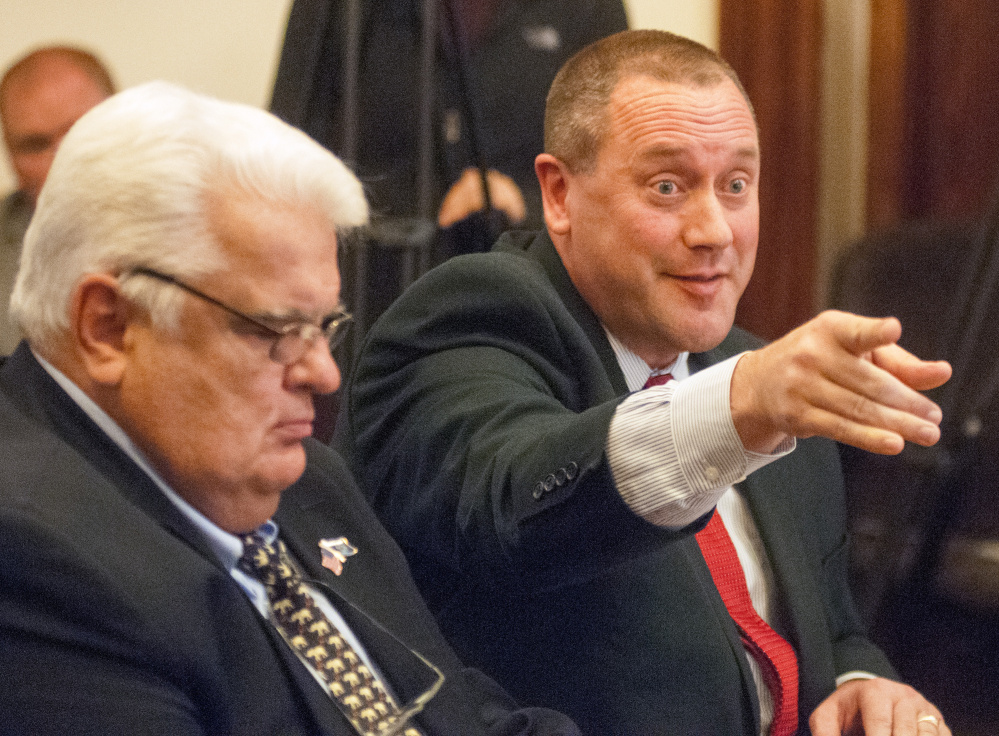
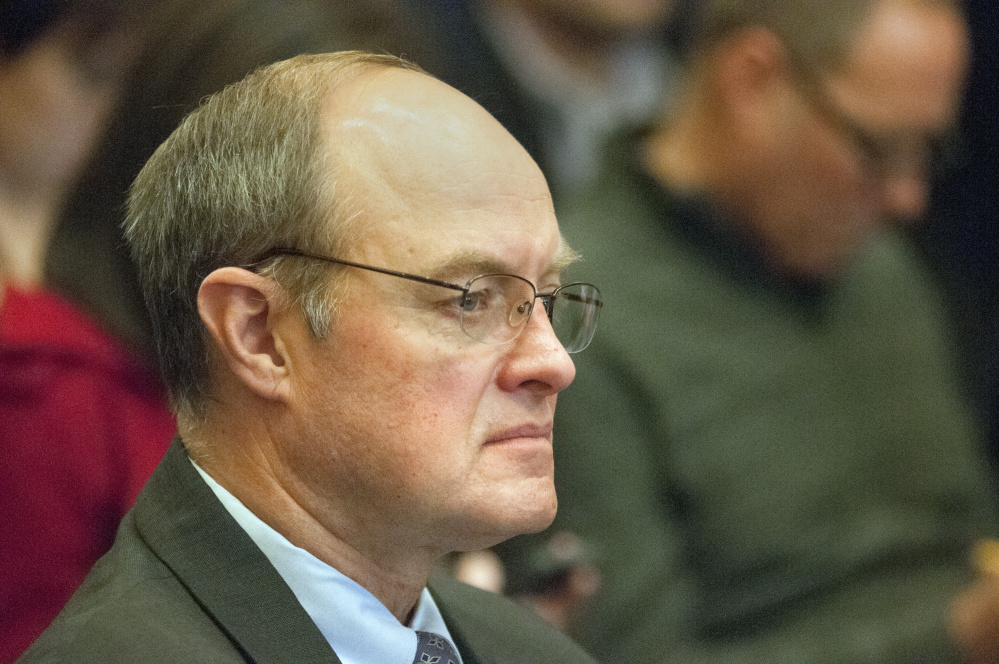
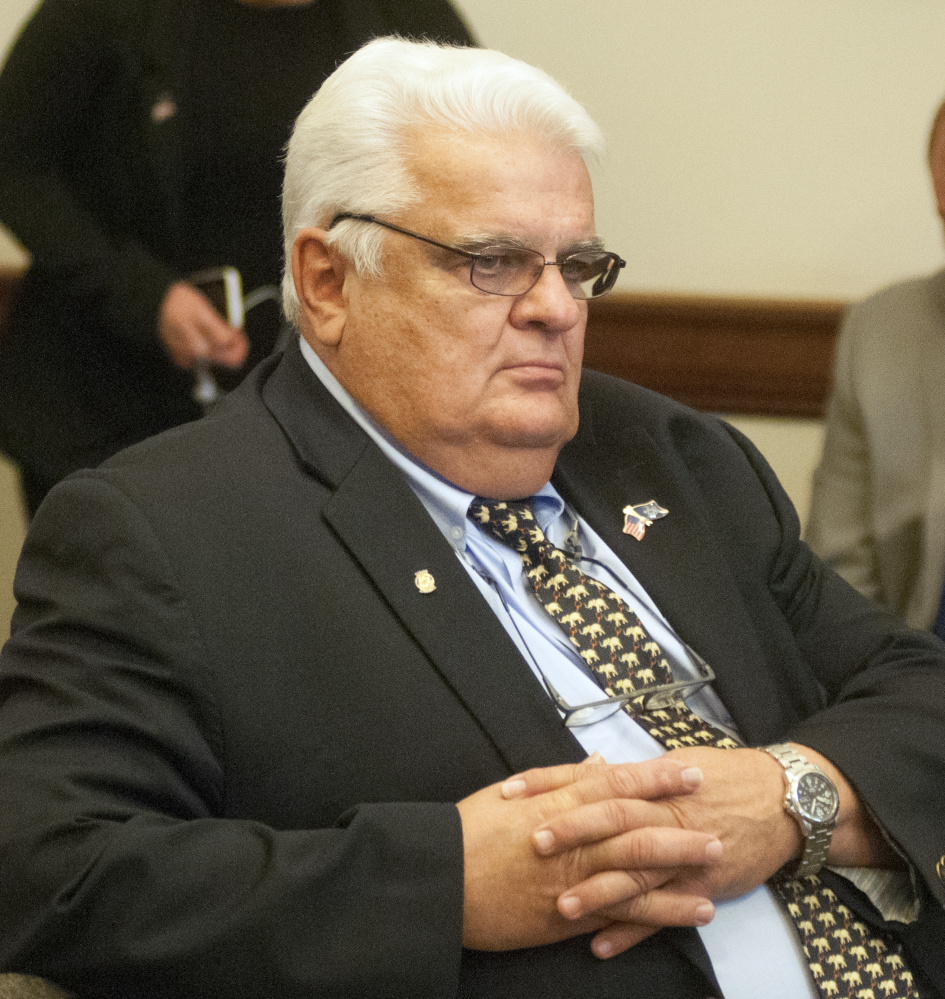
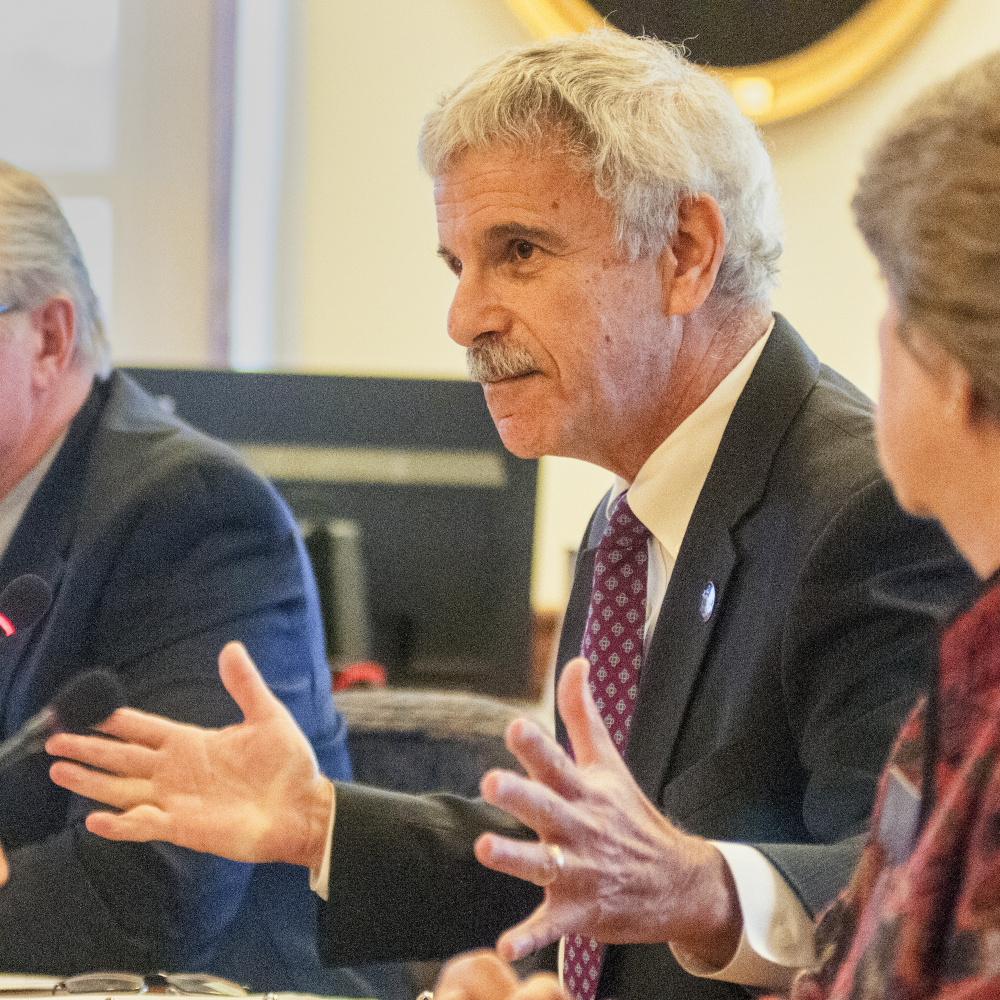
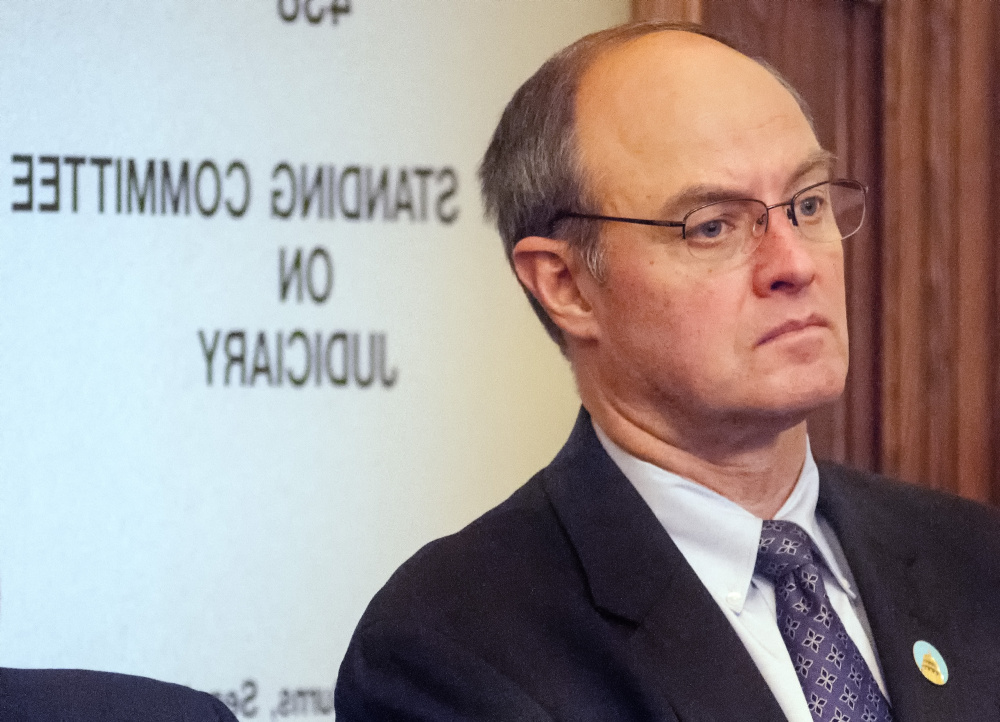
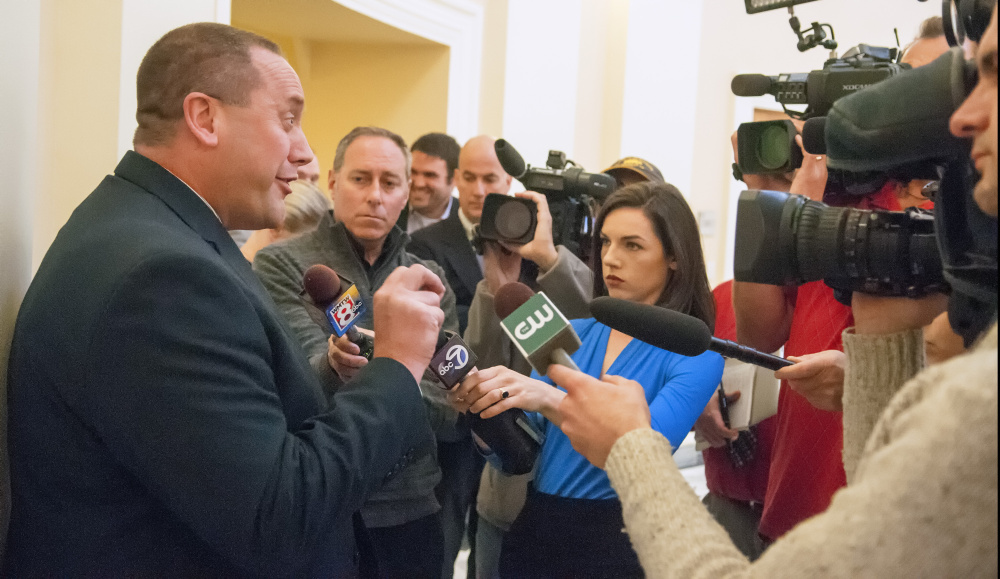
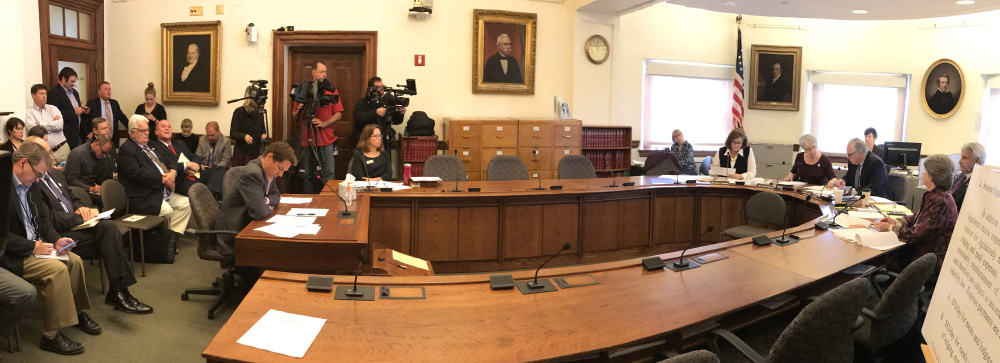

Success. Please wait for the page to reload. If the page does not reload within 5 seconds, please refresh the page.
Enter your email and password to access comments.
Hi, to comment on stories you must . This profile is in addition to your subscription and website login.
Already have a commenting profile? .
Invalid username/password.
Please check your email to confirm and complete your registration.
Only subscribers are eligible to post comments. Please subscribe or login first for digital access. Here’s why.
Use the form below to reset your password. When you've submitted your account email, we will send an email with a reset code.